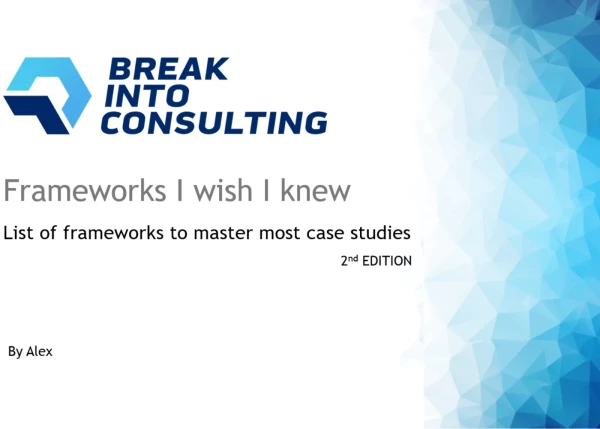When I am being the interviewee, I always stuck in a long time to think which framework that I have to use for structuring the case. I need an advice for improving to think quick for recognizing the type of framework of the case that I am facing.
Thanks Vlad for the answer! Anyway how we could identify quickly the most appropriate structure for each type of case? Because this is the phase where I often get stuck. For example when the interviewer had explained me the client situation and objective, I always stuck to structure the framework because simply I don't know which type of framework that I have to use for structuring and give recommendation.



